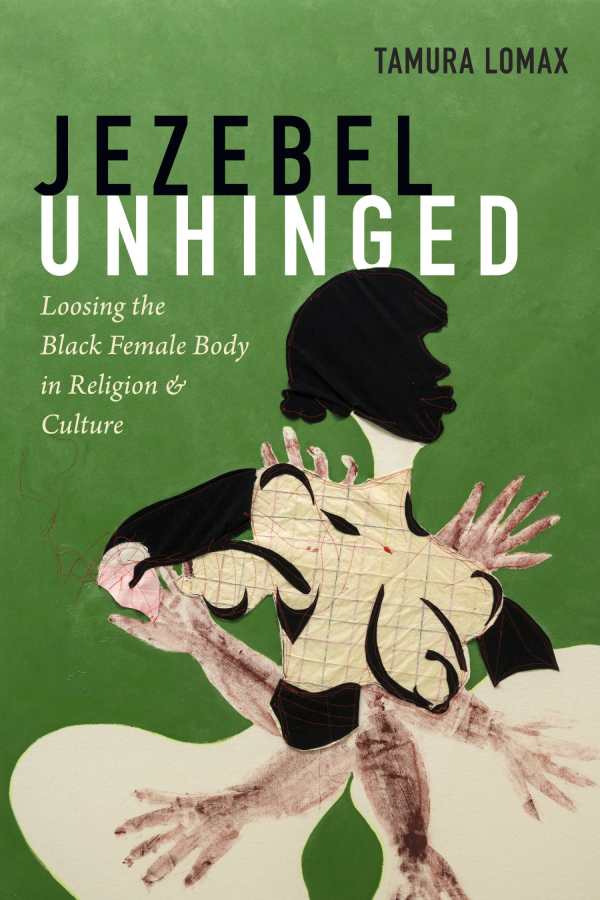Jezebel Unhinged
Loosing the Black Female Body in Religion and Culture
Black womanhood is a complex, deeply provocative subject that exists at the intersection of multiple identities. Tamura Lomax’s new book Jezebel Unhinged is a phenomenal work that investigates the role of the church in constraining black women.
Lomax’s writing is undeniably scholarly. The notes for each of the book’s seven chapters are extensive, and its bibliography is gratifying and dense. However, Jezebel Unhinged is still readable, accessible, and provocative.
Lomax augments her arguments with personal stories. When she was eleven, she explains, “a prominent elder of my childhood church told my father that he could not focus during altar call because he was sexually overwhelmed by my prepubescent derriere.” Lomax’s tone is dry and sometimes self-effacing, but her honesty and careful inclusion of anecdotes and dialogue lend warmth to the book, making it easy to understand the oppression that Lomax describes.
Jezebel Unhinged focuses on the limitations that black women face. Throughout, it discusses where racist and sexist “jezebel,” “mammy,” and “angry black woman” stereotypes come from and how they make it nearly impossible for black women and girls to find strength, power, or fluidity of expression. Black women, Lomax points out, have to navigate an unimaginably complex web of ideological biases both inside and outside their communities. These biases are reinforced by the black church and black popular culture.
In spite of their oppression, black women resist, appropriate, and play with these stereotypes, and Lomax describes black female joy in a moving, powerful way. When we outgrow our childish ideas of sin and of the sinful body, she suggests, black women can finally be free.
An amazing pick for book clubs, reading discussion groups, or faith study groups, Jezebel Unhinged offers a fresh, exciting perspective on blackness, black female bodies, African American culture, and contemporary Christian teachings.
Reviewed by
Claire Foster
Disclosure: This article is not an endorsement, but a review. The publisher of this book provided free copies of the book to have their book reviewed by a professional reviewer. No fee was paid by the publisher for this review. Foreword Reviews only recommends books that we love. Foreword Magazine, Inc. is disclosing this in accordance with the Federal Trade Commission’s 16 CFR, Part 255.

